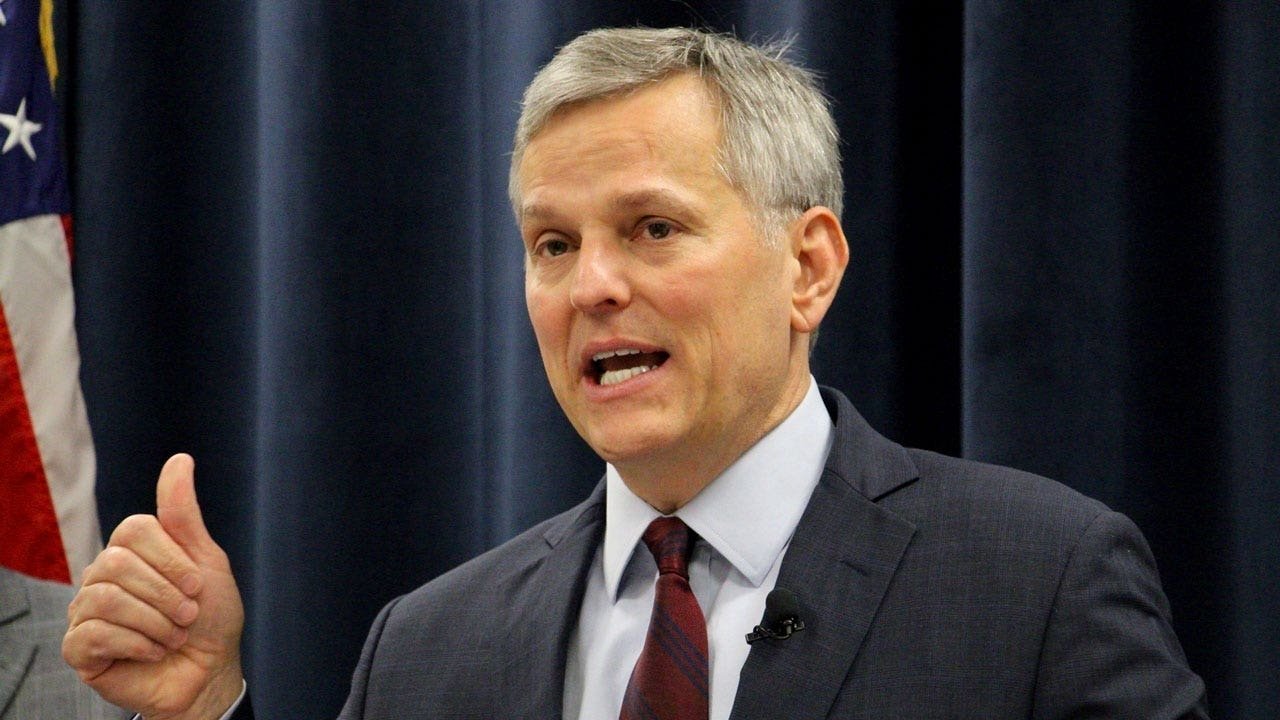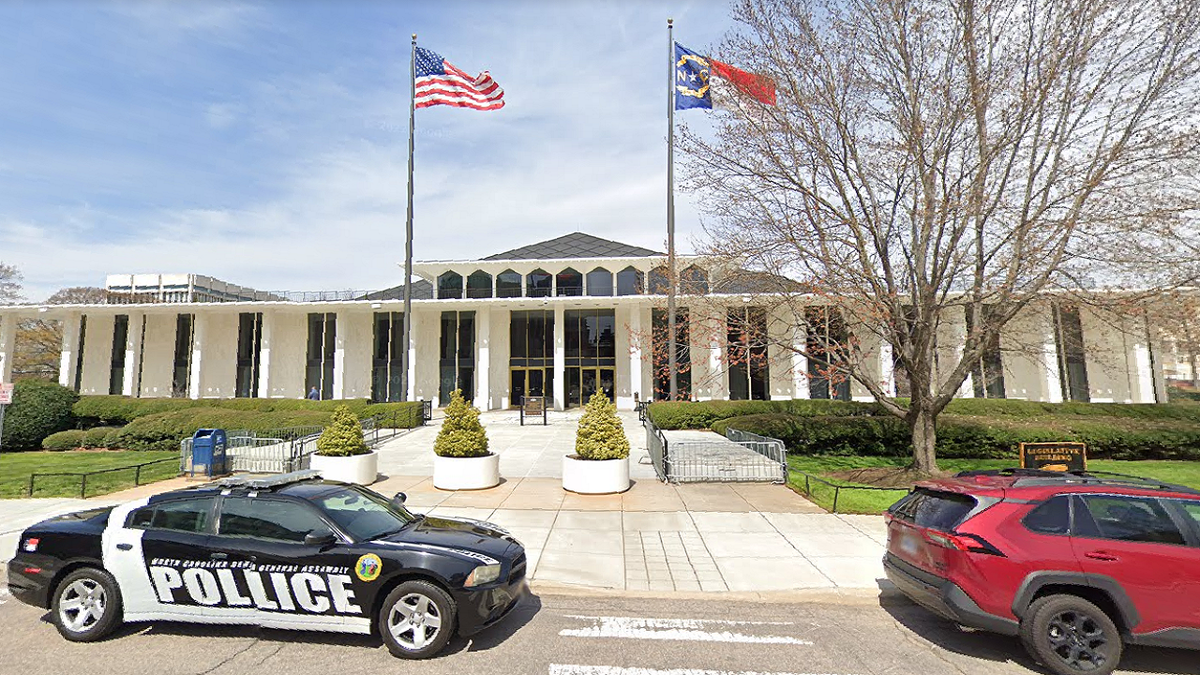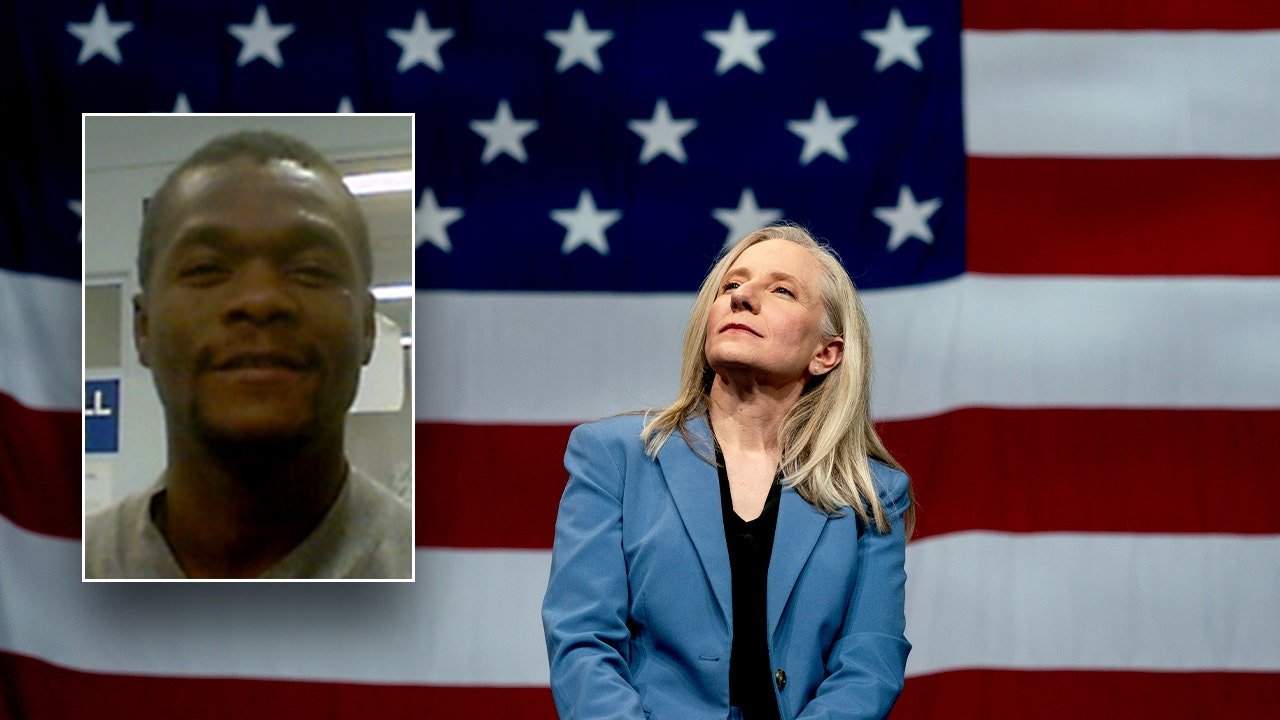INTERNACIONAL
North Carolina governor vetoes Republican-led anti DEI and trans legislation

NEWYou can now listen to Fox News articles!
North Carolina Gov. Josh Stein has vetoed four controversial bills that target diversity, equity and inclusion (DEI) initiatives and transgender rights, setting up a political clash with the Republican-led General Assembly.
Stein, a Democrat, blasted the three DEI-focused bills as being «mean-spirited» that would «marginalize vulnerable people» and took aim at Republicans who failed to pass a fiscal budget for the year that just began.
The DEI bills ought to ban DEI training, hiring practices and staff positions in state and local governments as well as outlawing the use of state funds for DEI programming. The legislation would have imposed civil penalties on workers who violate the rules. No Democrats supported the three DEI bills.
North Carolina Gov. Josh Stein has vetoed four controversial bills that target diversity, equity and inclusion (DEI) initiatives and transgender rights, setting up a political clash with the Republican-led General Assembly. (AP Photo/Hannah Schoenbaum)
NORTH CAROLINA PROFESSOR WHO WAGED ‘WAR ON DEI’ AT UNIVERSITY TOUTS WIN
«At a time when teachers, law enforcement, and state employees need pay raises, and people need shorter lines at the DMV, the legislature failed to pass a budget and, instead, wants to distract us by stoking culture wars that further divide us,» Stein said in a statement.
«These mean-spirited bills would marginalize vulnerable people and also undermine the quality of public services and public education. Therefore, I am vetoing them. I stand ready to work with the legislature when it gets serious about protecting people and addressing North Carolinians’ pressing concerns.»
The measures cutting or eliminating diversity, equity and inclusion initiatives in state and local governments, K-12 public schools and the university system have been a major priority for GOP lawmakers. They argue the programs targeted have overemphasized identity to the detriment of merit and societal unity.
The transgender bill began as a bipartisan measure to curb sexual exploitation by enforcing age verification and consent rules for pornography websites. But lawmakers later added controversial provisions, including a ban on state-funded gender-affirming procedures for prisoners.

The transgender bill began as a bipartisan measure to curb sexual exploitation by enforcing age verification and consent rules for pornography websites. But lawmakers later added controversial provisions, including a ban on state-funded gender-affirming procedures for prisoners. (ANGELA WEISS/AFP via Getty Images)
RUBIO-RUN STATE DEPARTMENT DUMPS BIDEN-ERA DEI HIRING CRITERIA, REPLACES WITH ‘FIDELITY’
It also affirms the recognition of two sexes and requires the state to officially attach a transgender person’s new birth certificate to their old one if they change their sex assigned at birth.
Stein said in a veto message that he strongly supported the anti-sexual exploitation provisions in the bill, but the final measure went too far. «My faith teaches me that we are all children of God no matter our differences and that it is wrong to target vulnerable people, as this bill does,» he added.
One Democrat backed the fourth bill before Stein vetoed it. All four bills now return to the General Assembly, which could reconvene later this month to attempt veto overrides. Republicans are one vote short of a veto-proof supermajority in the House.

All four bills now return to the General Assembly, which could reconvene later this month to attempt veto overrides. Republicans are one vote short of a veto-proof supermajority in the House. (Google Maps)
CLICK TO GET THE FOX NEWS APP
The vetoes bring Stein’s total to 11 since taking office in January — all within the past two weeks. Stein was previously North Carolina’s attorney general since 2017 after serving in the state Senate from 2009 to 2016.
The progressive attorney and politician campaigned on a platform of lowering the cost of housing, increasing job creation, expanding access to abortion and improving education.
Fox News’ Emma Colton and The Associated Press contributed to this report.
INTERNACIONAL
La clave biológica que convierte a los loros en los grandes imitadores del reino animal

Los loros sorprenden por su habilidad para imitar el habla humana, un fenómeno que intriga tanto a aficionados como a expertos. Un equipo internacional de científicos, liderado por la Universidad de Duke y citado por National Geographic, identificó la base cerebral que explica esta destreza y detalla cómo su estructura cerebral los diferencia de otras especies animales.
La comunicación animal abarca una gran variedad de sonidos —desde ladridos hasta cantos—, pero la reproducción espontánea de palabras y frases completas es extremadamente rara. Solo los humanos y muy pocas especies, como los loros, demuestran un dominio notable de la imitación del habla. Estas aves no solo copian sonidos, sino que pueden incorporar fragmentos completos de lenguas humanas a su repertorio.
El comportamiento espontáneo de los loros incluye la imitación de sonidos ambientales y vocalizaciones humanas. Como ejemplo, se observó periquitos Finsch en Costa Rica intercambiando “saludos” audibles. Este fenómeno captó la atención de la ciencia, que busca descifrar por qué estas aves muestran tanta afinidad por la imitación.

La investigación publicada en la revista Plos One y reseñada por National Geographic revela que la clave reside en características particulares del cerebro de los loros. A diferencia de pájaros cantores y colibríes, estas aves presentan una estructura denominada caparazón, exclusiva de su morfología cerebral.
La presencia del caparazón significa que los loros cuentan con áreas cerebrales adicionales que potencian la recogida y el procesamiento de información sonora. Esta estructura agrega complejidad, permitiendo un grado superior de reconocimiento, decodificación y reproducción de sonidos. Dichas diferencias, según el equipo de la Universidad de Duke, explican la capacidad única de estas aves para imitar tanto palabras como patrones melódicos complejos, algo que excede las habilidades de otras especies.
El caparazón es señalado como el centro que brinda a los loros una versatilidad sobresaliente en la imitación vocal, posicionándolos como los animales no humanos más hábiles para esta tarea.
Según científicos, la imitación en los loros no depende solo de áreas cerebrales especializadas. La interacción entre el sistema auditivo y el sistema motor resulta fundamental. Estas aves logran procesar los sonidos con gran precisión y los integran, mediante movimientos musculares y respiratorios muy coordinados.

(Imagen ilustrativa Infobae)
Este mecanismo biológico convierte la información auditiva en acciones vocales concretas. La sintonía entre oído y músculo permite reproducir palabras, melodías y hasta sonidos ambientales con una fidelidad difícil de igualar. Así, la combinación entre un cerebro especializado y un sistema motor adaptado distingue a los loros entre el resto del reino animal.
Pese a la sofisticación interna, los expertos aclaran que no se hallaron adaptaciones anatómicas adicionales, como articulaciones u órganos vocales extra. No hay pruebas de que los loros cuenten con estructuras físicas distintas en su aparato vocal que expliquen su capacidad.
La singularidad de los loros radica exclusivamente en su estructura cerebral compleja y en la eficaz integración de sus sentidos. Su asombroso talento para la imitación del habla sigue siendo, por ahora, una consecuencia directa de su biología interna y no de mecanismos físicos ocultos.
Además, los estudios comparativos entre especies de loros revelan que el tamaño relativo del caparazón varía de acuerdo con la destreza imitativa de cada grupo. Especies conocidas por su gran capacidad para reproducir sonidos humanos, como el loro gris africano y el loro amazónico, presentan un caparazón más desarrollado que otros loros menos hábiles en la imitación. Este hallazgo sugiere una relación directa entre la extensión de esta estructura cerebral y el repertorio vocal disponible para cada ave, aportando nuevas pistas sobre la evolución de la comunicación compleja en el reino animal.
Loros,Aves,Naturaleza,Bosque tropical,Fauna,Animales,Colores,Vida silvestre,Ecología,Trópico
INTERNACIONAL
Dem governor under fire after illegal alien allegedly stabs woman to death at bus stop: ‘Heinous’

NEWYou can now listen to Fox News articles!
EXCLUSIVE: The Department of Homeland Security is calling on Virginia’s Democratic Gov. Abigail Spanberger to ensure local law enforcement cooperates with federal immigration officials by handing over an illegal immigrant with a lengthy criminal record who allegedly killed a woman earlier this week at a Virginia bus stop.
Police in Fairfax County, Virginia, arrested an illegal immigrant from Sierra Leone earlier this week on charges of second-degree murder after he allegedly fatally stabbed a woman, Stephanie Minter, 41, who was found dead at a local bus stop with several wounds to the upper body.
The alleged suspect, Abdul Jalloh, 32, also has a criminal history of more than 30 arrests, according to DHS, including for rape, malicious wounding, assault, identity theft, contributing to the delinquency of a minor, assault and pick-pocketing.
The request from the Trump administration comes after the newly elected Democratic governor of Virginia signed an executive order to end cooperation between federal immigration officials and state and local law enforcement, a move several Democratic Party governors have taken recently amid President Donald Trump’s move to increase deportation operations around the country.
The DHS request asking Virginia officials to cooperate with ICE also comes after an illegal immigrant allegedly murdered someone just days after being released from jail for a separate crime in December.
Abdul Jalloh, 32, and Gov. Abigail Spanberger (Department of Homeland Security/Getty Images)
«We are calling on Virginia Gov. Abigail Spanberger and Virginia’s sanctuary politicians to commit to not releasing this murderer and violent career criminal from their jail without notifying ICE,» said Deputy Assistant Secretary Lauren Bis.
«This illegal alien’s murder of an innocent, beautiful American woman came less than 24 hours before Governor Spanberger’s demonization of ICE law enforcement. This heinous criminal is a perfect example of why we need cooperation from sanctuary jurisdictions and the importance of third country removals for the safety of the American people.»
Spanberger’s representatives did not respond to Fox News Digital’s request for comment.
Jalloh entered the United States illegally in 2012, according to DHS, and immigration officials lodged an immigration detainer against him in 2020, whereupon he was granted a final order of removal by a judge who said he could be removed to any country other than Sierra Leone.
ILLEGAL IMMIGRANT WITH PRIOR DEPORTATION SHOOTS DEPUTY IN CHEST, DIES AFTER EXCHANGE: DHS

Protesters, using whistles to alert neighborhoods to ICE activity, face off with Minneapolis police officers in Minneapolis Jan. 24, 2026. (Roberto Schmidt/AFP via Getty Images)
DHS indicated that ICE cooperation to ensure Jalloh’s deportation is evident after a case Fox News covered in December when a criminal illegal alien from El Salvador, Marvin Morales-Ortez, 23, allegedly killed a man just a day after Fairfax County jail officials let him go.
The immigrant from El Salvador had been in custody on charges of malicious wounding and brandishing a gun, but police released him after the Fairfax County Commonwealth’s Attorney’s Office, led by George Soros-backed prosecutor Steve Descano, dropped the charges.
Fox News Digital reached out to the Fairfax County Sheriff’s office to inquire about why the man had not been handed over to ICE.
The sheriff’s office said, «ICE was aware of Morales-Ortez’s incarceration and elected not to seek a judicial warrant to ensure he remained in custody.

Marvin Morales-Ortez, who is living in the country illegally, was released from Fairfax County custody and then allegedly committed a murder the next day. (Fairfax County Police Department/Getty Images)
«The Fairfax County Sheriff’s Office follows all local, state and federal laws when determining whether a person is subject to release from the ADC,» the sheriff’s office told Fox News Digital at the time. «Immigration and Customs Enforcement (ICE) is automatically notified any time a person is booked into the ADC.»
CLICK HERE TO DOWNLOAD THE FOX NEWS APP
The same sheriff’s office did not get back to Fox News Digital’s media inquiry for this story on DHS urging officials to cooperate with federal officials.
migrant crime,virginia,abigail spanberger,illegal immigrants,immigration,deportation,crime world
INTERNACIONAL
Los archivos del fallido golpe de Estado de 1981 en España reivindican la figura del rey Juan Carlos: ¿Volverá a su país?


 POLITICA3 días ago
POLITICA3 días agoJorge Macri prepara su discurso para abrir el año legislativo: el deseo de reelección y el espejo en Bukele

 ECONOMIA2 días ago
ECONOMIA2 días agoCrisis en la industria: otra multinacional se achica y cierra una planta en la Argentina

 CHIMENTOS1 día ago
CHIMENTOS1 día agoAlarma por la salud de Divina Gloria tras salir de Gran Hermano: “La internaron directamente en terapia intensiva”















